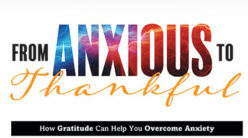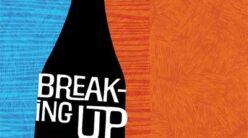My sister Jenny loves to liven up dinner parties by having people go around the room and answer the question, “What is your superpower?” In other words, what is some quality that others know you for, even if it’s something seemingly useless or outrageous?
Initially, there is an awkward pause when she turns to the person next to her and asks this question, but then the energy soars as people laughingly coin phrases for their outstanding characteristics, such as “Social Ambassador,” “Baby Whisperer,” or “Cyber Jockey.”
Although some of us might have a vague sense of our strengths, we often don’t have a real grasp of the qualities that make us shine—the traits that people most appreciate about us. At the same time, we are often hyperaware of our weaknesses and spend a lot of energy trying to hide, overcome, or compensate for them.
Psychologist Robert Biswas-Diener, Ph.D., (whose nickname, “The Indiana Jones of Positive Psychology,” might allude to some of his strengths), suggests that we have to accept that we all have weaknesses. He likens them to the water sloshing around in the bottom of a sailboat. We’re sailing, after all, so it’s to be expected. Sure, if there’s a leak, we have to fix it. But if we want to move, our strengths are our sails! And you make progress in your journey by putting your sails to work.
Recognize which of your strengths drain you and which energize you.
Fortunately, for those who have a hard time identifying their strengths, there are great online assessments to help identify power areas (see sidebar).
One of those assessments, the Capp Realise2, differentiates between strengths that empower and engage us and strengths that are “learned behaviors,” areas in which we perform well but are left with depleted energy. When I am working with clients, the most “Aha!” moments come when people realize that they spend a lot of time doing things they are good at but do not enjoy. They are proficient at the tasks, but these “learned behaviors” leave them depleted and disengaged.
For example, my business partner, Gioia, worked quite proficiently as an art therapist for elementary school children. She was well paid, but she was feeling restless and bored. She realized that she preferred working with adolescents—they were defiant and full of pathos, but the work inspired and fully engaged her—so she knew she needed to leave her position if she wanted to fully enjoy her work.
Similarly, I am good at managing finances, but doing accounting drains me. Because I’m an extrovert, I make it through the task much more quickly and enjoyably in the company of others, so I invite Gioia over to do art work and talk while I’m crunching the numbers for our business.
Use your strengths at the right time and the right place.
Some of our strengths may emerge more in certain situations than in others. We may be very courageous when we are protecting someone who is being bullied, but very shy and nervous if we have to go on stage. While that happens involuntarily sometimes, there are situations in which we need to choose when and how much to use a strength, depending upon what makes the most sense in a given situation. For example, it may not be helpful to use the strength of humor with someone who has just suffered a loss.
Become a strength spotter.
Biswas-Diener suggests that we can be “strength spotters”—that is, we can become more aware not just of our own but other people’s outstanding qualities as well. Doing so has multiple benefits. First, it helps us be more appreciative of our family members, friends, colleagues, and even strangers who cross our path. Often in relationships we slip into judging others, especially people who are close to us, for their approach to life instead of noticing the unique benefits they bring to a situation. Second, we can compensate for areas in which we are challenged or accomplish tasks which deplete us by partnering with someone whose strengths balance ours. Whatever attributes you and others recognize as quintessentially “you,” and even more importantly, the ones that energize and invigorate you, these are the strengths that you want to identify, build upon, and utilize more in your life. So, don’t worry about a little water in your hull—cultivate your super strengths to catch the wind and set sail! Happy voyages!
Rebecca Wilkinson serves as adjunct faculty of the George Washington University Graduate Art Therapy Program and is the founder of Creative Wellbeing Workshops.






